
IN the relentless march of headlines detailing heat wave fatalities-"100 People Die in Heatwave" or "Extreme Heat Kills Hundreds"-the profound human narratives often fade into statistical obscurity. Who are these individuals succumbing to the sweltering temperatures in the Global South, in our cities, and across our villages? What stories do they carry, and what societal injustices push them to the forefront of this climate crisis?
The unsettling truth emerges: the victims predominantly hail from marginalised communities, bearing the intersectional weight of caste, gender, and economic disparity. The impact of heat waves is far from equitable.
The Heat is not Equal to All of Us
Consider someone sitting in an air-conditioned room and compare their experience to that of a Dalit woman toiling in the sun, working someone's field for a daily wage. The difference is stark. In these fields, even access to water is unequal. In the realm of environmental discourse, water is often romanticised as the nectar of life, a symbol of purity, and a source of natural beauty. However, for Dalits in India, water carries a burden far heavier than its lifenurturing properties-it is a stark reminder of caste-based discrimination and exclusion.
Imagine fetching water not as a routine chore but as a journey fraught with the fear of facing discrimination and violence. For Dalits, accessing water sources reserved for upper castes can result in ostracisation, verbal abuse, or even physical assault. The simple act of quenching one's thirst becomes a daily struggle.
This story is from the July 21, 2024 edition of Outlook.
Start your 7-day Magzter GOLD free trial to access thousands of curated premium stories, and 9,000+ magazines and newspapers.
Already a subscriber ? Sign In
This story is from the July 21, 2024 edition of Outlook.
Start your 7-day Magzter GOLD free trial to access thousands of curated premium stories, and 9,000+ magazines and newspapers.
Already a subscriber? Sign In
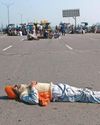
Between Life, Death and Protest
The strain of sustaining a long protest is evident among farmers at Khanauri, but the sense of community remains strong
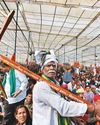
Protest 2.0
Farmers still have hopes from their leaders, but time is running out. The enemies, in the meanwhile, are sharpening their weapons

Trajectory of Nowhere
In the context of space and time, who are we humans and do we even matter?

All of God's Men
THE ongoing Maha Kumbh at Prayagraj is a spectacle, a photo op, and an emotion and manifestation of the mixing of spirituality and faith.
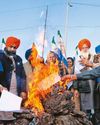
Embers Rekindled
While the recent death by suicide of a farmer has rendered the mood sombre at Shambhu border, the protests have picked momentum at the call of the unions

Time for Course Correction
What the protest by Punjab's landed peasantry tells us about the state's economy and society

The Untouchable
The ideological chasm between Ambedkar's vision and the Hindutva worldview remains irreconcilable
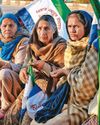
Frontliners
A day in the life of women protesting at Shambhu border
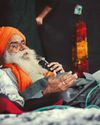
The Farmer-Composing Antagonist
Farmer leader Jagjit Singh Dallewal has been on a fast-unto-death at Khanauri border to pressurise the government to fulfil its promises to the farming community
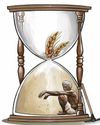
Till Death Do Us Part
Jagjit Singh Dallewal has reinforced how a fast unto death can serve as a warning and an appeal to the public and the government